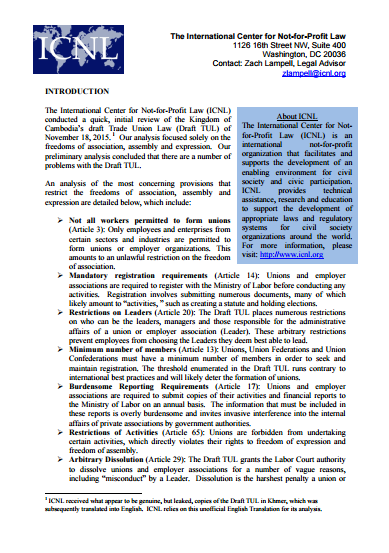
Analysis on Draft Trade Union Law
Publication Year: 2015 / Sources: The International Center for Not-for-Profit Law (ICNL)The International Center for Not-for-Profit Law (ICNL) analysis focused solely on the freedoms of association, assembly and expression. This preliminary analysis concluded that there are a number of problems with the Draft TUL.
Download: English | Khmer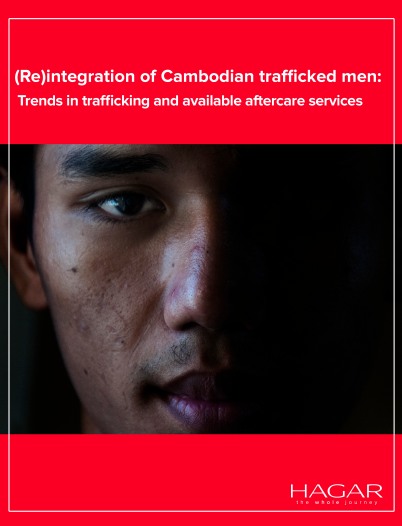
(Re)integration of Cambodian Trafficked Men: Trends in Trafficking and Available Aftercare Services
Publication Year: 2015 / Sources: Hagar CambodiaMen constitute a significant proportion of the identified victims of trafficking in Cambodia. While there is no coordinated database of victim numbers, between 2011 and 2014, males comprised 59 per cent of trafficking victims assisted by the Counter Trafficking in Persons Program Phase II, and more than 88 per cent of those assisted by the International Organization for Migration Cambodia. The aim of this research is to inform service providers who seek to fill the gap in aftercare for men.
Download: English | Khmer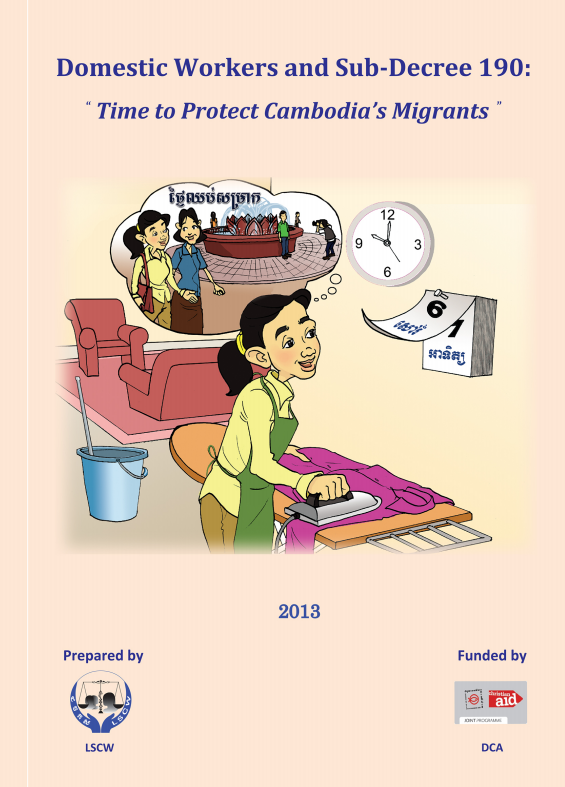
Domestic Workers and Sub-Decree 190: Time to Protect Cambodia’s Migrants
Publication Year: 2013 / Sources: Legal Support for Children and Women (LSCW)On August 17th, 2011, the Royal Government of Cambodia enacted Sub‐Decree #190 on The Management of the Sending of Cambodian Workers Abroad through Private Recruitment Agencies. The Sub‐Decree is a regulation that replaces the previous Sub‐Decree #57 on Sending Khmer Migrants Abroad (1995). The Sub‐decree establishes the Ministry of Labor and Vocational Training (MoLVT) as the authority to grant licenses to Cambodian recruitment agencies to send workers abroad
Download: English | Khmer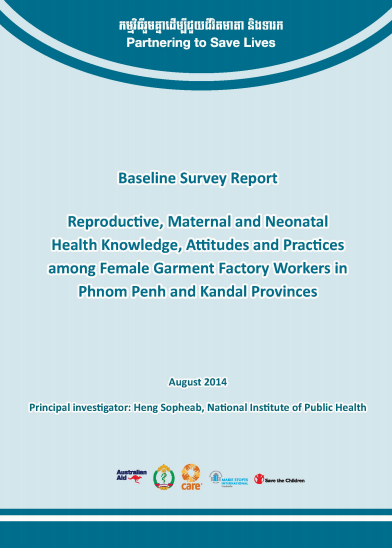
Reproductive, Maternal and Neonatal Health Knowledge, Attitudes and Practices among Female Garment Factory Workers in Phnom Penh and Kandal Provinces
Publication Year: 2014 / Sources: National Institute of Public HealthCambodia has a large population of recent rural-to-urban migrants, predominantly between the ages of 18 and 30, which is clustered around the garment manufacturing industry. Up to half a million people are estimated to be working in the garment industry; approximately 85% of these are women.
Download: English | Khmer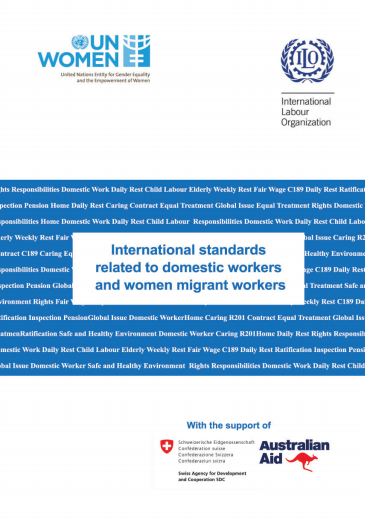
International Standards Related to Domestic Workers and Women Migrant Workers
Publication Year: 2015 / Sources: UN Women and International Labor OrganizationIncluding domestic work in the scope of Cambodia’s labour law and working towards the ratification of Convention No.189 will create the legal foundation necessary to provide rights and protection for domestic workers in Cambodia. This will ultimately lead to increased gender equality in the labour market, as well as the economic empowerment of women.
Download: English | Khmer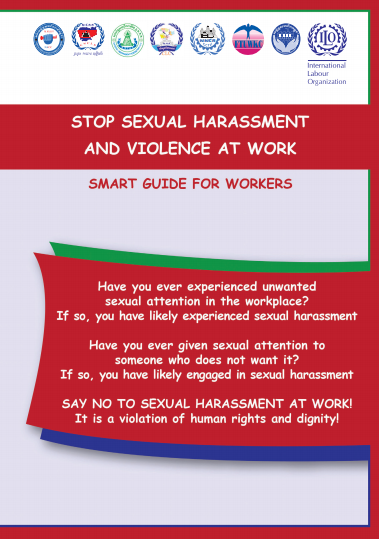
Stop Sexual Harassment and Violence at Work : Smart Guide for Workers
Publication Year: 2014 / Sources: International Labour OrganizationThis guide is intended to raise awareness about sexual harassment, encourage victims to seek help to end the problem, motivate offenders to stop their harassing behavior, and encourage employers and managers to prevent and take action against it in workplaces. We can all help to stop sexual harassment if we RESPECT the DIGNITY of our co-workers and act professionally towards each other.
Download: English | Khmer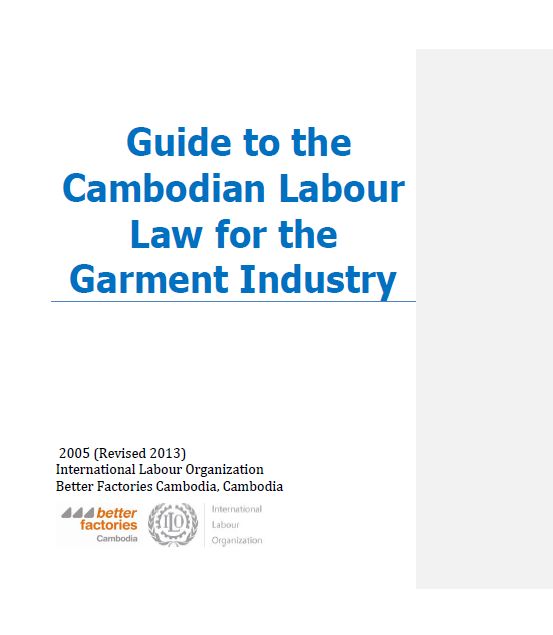
Guide to the Cambodian Labour Law for the Garment Industry
Publication Year: 2013 / Sources: International Labour Organization Better Factories CambodiaThis Guide brings together all sources of Cambodian labour law into a single, compre-hensive guide for the manufacturing sector. The Guide covers all major areas of Cambodian labour law, derived from the Labour Law itself, regulations of the Royal Government, international labour standards that have been ratified by Cambodia, and the Cambodian Constitution.
Download: English | Khmer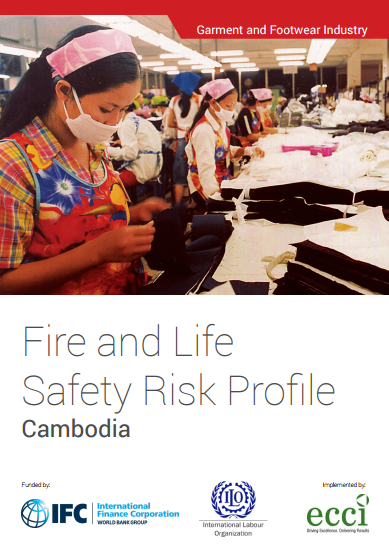
Fire and Life Safety Risk Profile
Publication Year: 2015 / Sources: Better Factories CambodiaThis document provides an analysis of inherent fire and building safety risks in the Cambodian garment and footwear industry and suggests possible mitigation measures as well as recommendations to key stakeholders to reduce these industry risks.
Download: English | Khmer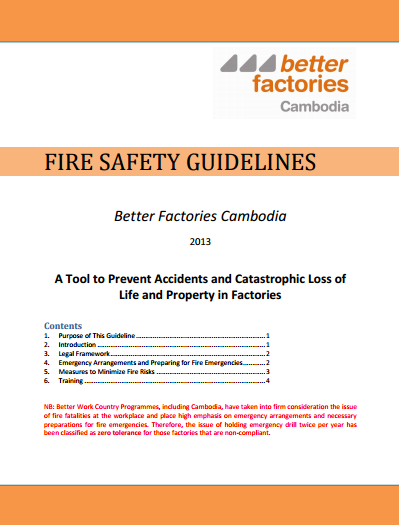
Fire Safety Guidelines
Publication Year: 2013 / Sources: Better Factories CambodiaThis guideline is designed to provide employers, managers, and workers with key information on the severe risks that fires pose at the workplace as well as on their prevention and control. This document also assists those who are responsible for ensuring safety at the workplace to prevent the catastrophic loss of life and property that could result from a fire.
Download: English | Khmer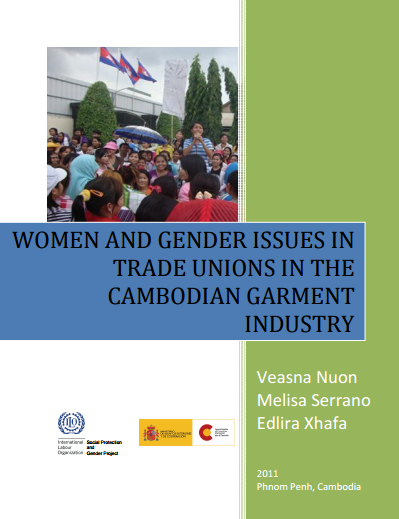
Women and Gender Issues in Trade Unions in the Cambodian Garment Industry
Publication Year: 2011 / Sources: International Labour Organization (ILO)Working conditions of women in the garment sector have been discussed in a number of reports especially since the Better Factories Cambodia Project. It is important to underline here that since the majority of garment workers come from rural areas, and often live away from traditional family support structures, they are much more vulnerable to exploitation and to work-related problems than other workers.
Download: English | Khmer